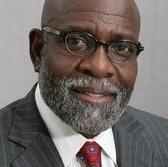At the start of February, when the city I call home, Bloomington, Indiana, kicked off its annual Black History Month (BHM) celebration, I was by far the oldest person in the room, and I had myself a front row seat, too! You see, having been forced to sit in the back of the waiting room at the local Greyhound bus station, and to sit in the back of the bus once we boarded, and being forced to go to a white person’s back door while growing up in the Arkansas Delta, the last time I sat in the back of any venue or vehicle, or drank from a Colored Only water fountain, was in the early 1960s.
These days, to avoid sitting in the back of a room, I always arrive early, and if necessary, I will squeeze through crowded rows of an event hall, theater, or place of worship to avoid accepting a seat in the back. In restaurants and on airplanes, I always refuse seats in the back or near the restroom. It hasn’t taken long for my millennial-generation son and members of his friendship circle to recognize that life’s pain, not paranoia, is the primary driver of my predilections.  Dr. Charlie Nelms
Dr. Charlie Nelms
Before our contemporary highly orchestrated Black History Month observance, which began in 1970, my generation celebrated Negro History Week, launched in 1926 by Dr. Carter G. Woodson, a prolific scholar, journalist, and activist, regarded as the “father of Black history.” Along with others, in 1915 Woodson founded the Association for the Study of Negro Life and History (ASNLH), which published the Journal of Negro History. While I do not know what Professor Woodson’s annual salary was at the height of his prodigious career at Howard University, if I were a betting person, I would wager that it paled in comparison to the fees commanded by Black public intellectuals who grace the stage at our annual Black History Month and Dr. Martin Luther King, Jr. commemorations across America.
Do not think for a moment I am suggesting speakers should not be compensated for their knowledge, expertise, popularity, and speech-making acumen. Quite the contrary: I believe they should be compensated appropriately! However, I believe the time has come for us to seriously reconsider how we celebrate the history, life, and cultural traditions of African Americans. This is especially true given the plethora of bills introduced and passed by legislators dictating what faculty at all levels of education can and cannot teach. If asked, most legislators I know cannot even define “critical race theory,” so they prohibit teaching anything that makes white students uncomfortable!
How then would I, a Black baby boomer and parent, who came of age in the Deep South in 1960s, recommend we approach the celebration of Black History Month? In the interest of transparency and full disclosure, before proceeding, I would note that unlike Professor Woodson, I am not an historian, and this is not the first time I have floated these ideas that some might consider heretical. Even so, I offer them with the hope that they strike a responsive chord with enough people to spark a conversation about one of the most public celebrations in America: Black History Month.





















